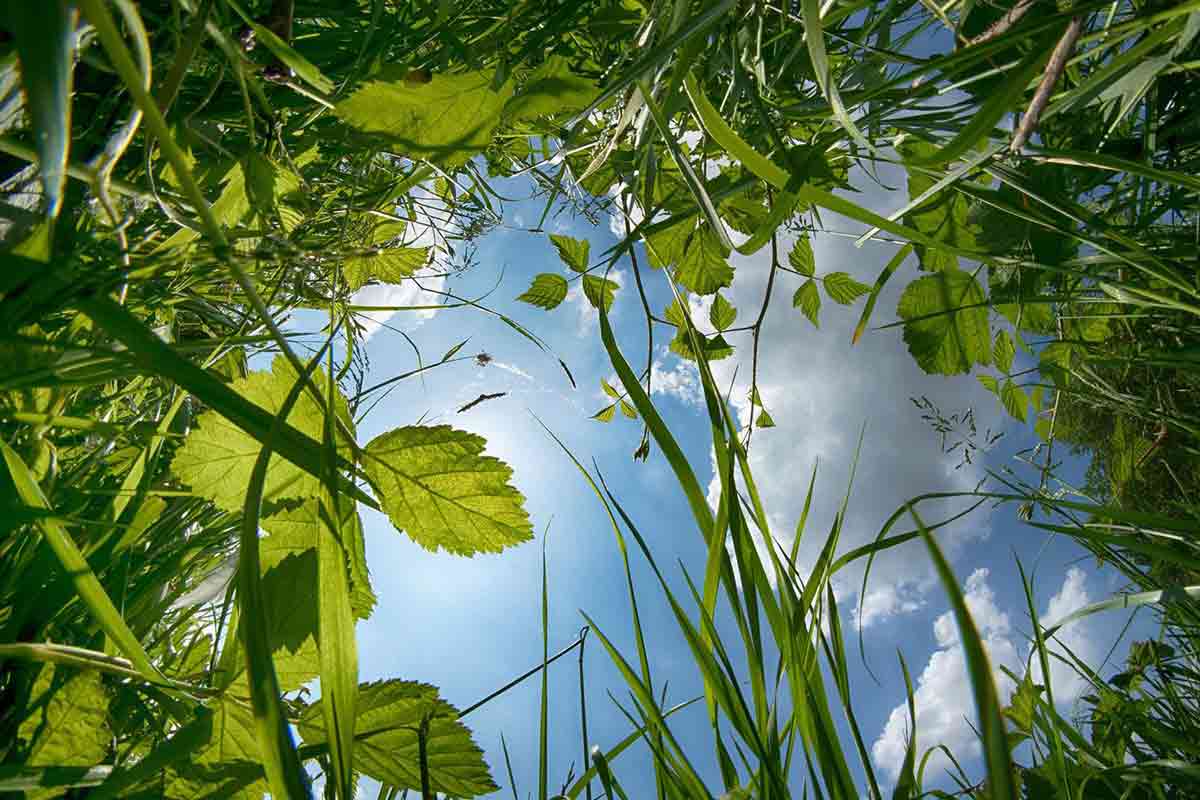Protect Your Home from Wasps and Bees
Since 2008, Stomp Pest Control has been offering bee and wasp nest removal for residents in the greater Raleigh area. If you want to bee and wasp-proof your yard, our locally owned and managed team can help. For as little as $35 per month (no hidden fees or contract is necessary), we offer bee and wasp nest removal.
Since bees and wasps are notorious for building nests in tough-to-reach spots and breed extremely quickly, eradication can be difficult using DIY methods. Before you know it, you can’t enjoy the outdoors in peace. If you need to have a nest removed or want to be proactive, our team is here to provide expert pest control services.
Bee Control & Wasp Control We Provide
Wasp Nest Removal
We offer wasp nest removal so you can enjoy the outdoors, mow your lawn, and garden without the fear of being stung. Wasps will lay eggs and reproduce quickly, so it’s important to have a wasp nest removed as soon as you notice one.
Types of Wasps We Eradicate
Our team provides wasp control and wasp nest removal for any kind of wasp, including the following:
Paper wasps: One of the most common types of wasps in North Carolina is the paper wasp. Red and Northern paper wasps have dark red and black body and often yellow legs. Their nests can be found in light fixtures, outdoor structures, chimneys, and bushes.
Yellowjackets: Yellowjackets are a common type of wasp that has a yellow body with black spiracles on their abdomens.
Mud Daubers: Mud daubers or mud wasps are mostly black with a few yellow markings on their legs and body. Their nests resemble tunnels with holes that are made of dirt.
Bald-faced Hornets: Its name is a misnomer — A bald-faced hornet is actually a type of wasp. They have paper-like nests and have faint white markings on their head and stinger. They can spray venom, making them an especially troublesome insect that calls for urgent wasp nest removal.
Bee Nest Removal
Types of Bee Nests We Remove
Our team provides bee control and bee nest removal for all kinds of bees, including the following:
Carpenter Bees: Carpenter bees drill holes into wood, such as wooden fences and decks, to make nests. They are characterized by their black faces followed by a fuzzy yellow thorax, followed by a black abdomen.
Bumblebees: Did you know that male bumblebees are only common in the late summer into fall whereas females are present year-round? Bumble bees have fuzzy bodies, distinct wings, and black and yellow stripes.
Honey Bees: Honey bees can be identified by the lack of small spikes on their legs and fuzzy upper bodies. Females have six abdomen sections while males have seven.
Mason Bees: Mason bees build nests out of mud, just like mud daubers. They find their home in hollow sticks and crevices such as gaps in stone and concrete. They have metallic bodies, usually in black or dark blue, and they transport pollen with the hairs on the underside of their hairy abdomens.
Southeastern Blueberry Bees: Southeastern blueberry bees are the best pollinators for blueberries — So much so that their bodies can fit inside a little flower that buds before the fruit is produced! These bees are usually non-invasive and non-aggressive to humans.
Hornet Nest Removal
Hornets are very aggressive and will sting anyone who comes near their nest. If you’ve seen a hornet or a hornet nest on your property, it’s important to have it removed by our professional pest control team. Our hornet nest removal includes the removal of European hornets, Asian hornets, and all other types of hornets.
-
Paper Wasps
- How big are paper wasps? The size of paper wasps range from 5/8-3/4 inches long (16-20 mm)
- What is the scientific name of paper wasps? Polistes spp
- Brownish in color with yellow or reddish markings
- Equipped with 6 legs and 2 antennas
- Oval-shaped with long legs
- Often referred to as umbrella wasps
- Tend to live in small and personalized colonies
- Considered to be social compared to other wasp breeds
- Known to feed off of nectar and other insects including flies, caterpillars, and ants
- Females are known to migrate inside during cold months after inseminated
- Strategically place nests in trees, porch crevasses, on top of windows and doorframes, deck railings and floor joints, and even in gutters
- Have been known to sting if they’re disturbed or if their nest is threatened
- Stings are known to be painful and also inflict allergic reactions
- Can be controlled and somewhat prevented by meticulously maintaining landscaping, walkways, railings, porches, and trees (if possible)
-
Yellowjackets
How big are yellowjackets? Between 3/8-5/8 of an inch long
- What is the scientific name of yellowjackets? Vespula spp.
- Black with yellow-striped patterns throughout
- Equipped with 6 legs and an antenna
- Found throughout the United States
- Oval-shaped with relatively short legs
- Live in large-sized colonies that consist of up to 4,000 worker bees
- Most active and bothersome during the late months of summer and early autumn, as their colonies are at their peak during those times
- Known to feed exclusively on sweet plants and vegetables and protein-rich plants
- Consume protein in their larval stage, unlike other similar insects
- Can be found essentially anywhere humans can be found, meaning it’s difficult to predict where they’ll end up building a nest
- Nests are built out of chewed up cellulose and can often be found in high-up crevasses and holes in the ground
- Will sting if threatened, which is an issue because they feel threatened extremely easily
- Considered social insects that are not afraid of humans
- Led by a queen bee, whom lives over the wintertime and initiates a new colony each spring
- Pose a significant health risk to humans, as they’re known to sting numerous times as opposed to only one time
- Send approximately 525,000 humans to the emergency room each year in the United States alone, which is astronomically high
- Can be controlled and even prevented by managing garbage cans closely (ensure they’re cleaned regularly and not left untouched for extended amounts of time), and avoid strong-smelling perfumes in late summer and early autumn seasons
-
Bumble Bees
How big are bumble bees? The sized of fully-grown bumble bees are usually 1 full inch long
- What is the scientific name of bumble bees? Subfamily bombinae; bombus species
- Yellow and black fuzz-like in appearance
- Equipped with 6 legs and antennas
- Oval-shaped and considered to be stubby looking as opposed to long and thin like other similar insects
- Found throughout the United States
- Notorious for building nests in the ground, near patio areas, and near the top of attics
- Can be spotted thanks to the obnoxious buzzing sound they make when flying
- Known to defend their nests very aggressively and will chase intruders or those who make them feel threatened for significant distances
- Have a very painful sting and can sting more than once, unlike other types of similar insects
- Can be controlled and potentially prevented by properly maintaining your home’s lawn and ensuring it has no holes
-
Carpenter Bees
- How big are carpenter bees? Typically between 1/4-1-inch long
- What is the scientific name of carpenter bees? Xylocopa species
- Yellowish-brownish and black in color with a fuzzy appearance, lacking markings on their abdomens
- Equipped with 6 legs and antennas
- Robust and oval-shaped with short-sized legs
- 7 different species of carpenter bees throughout the United States and a few hundred worldwide
- Notorious for boring round holes into soft wood, usually about 1/2 inch in diameter
- Are carpenter bees dangerous? Yes, though only female carpenter bees are able to sting
- Do carpenter bees live in colonies? No, carpenter bees are considered solitary bees and do not work or live in colonies like other similar insects do
- Can be controlled and monitored by regularly observing any wood in or around your home or property
-
Bald-Faced Hornets
How big are bald-faced hornets? Generally, between 1/2-5/8 inches, Queen bald-faced hornets are typically around 3/4 of an inch
- What is the scientific name of bald-faced hornets? Dolichovespula maculata
- Mostly black in color with a handful of white spots on body and face
- Equipped with 6 legs and antennas
- Long and thin in shape
- Can be found throughout the United States
- Known for being fast-moving and aggressive
- Build large paper-like, enclosed nests in trees that have been known to grow larger than a basketball over a month or two
- Can be controlled and possibly regulated by keeping a close eye on any potential paper-like nest forming in a tree around your home
- What do bald-faced hornets eat? Primarily flower nectar or juices. As members of the Vespidae family, they’ve also been known to live off of protein by eating other insects or small animals.
- How do bald-faced hornets reproduce? Queen bald-faced hornets lay numerous eggs inside her colonies nest which eventually hatch into larvae
- Do bald-faced hornets hibernate? Queen bald-faced hornets hibernate, usually inside a home owner’s shed or garage
Contact Us for Bee and Wasp Nest Removal in Raleigh
While many bees and wasps are beneficial to our ecosystem, they become a nuisance when they take over your yard or become aggressive. If bees and wasps are hindering your outdoor time or posing a threat to children or pets, it’s time to implement effective bee and wasp control.
To learn more about our bee and wasp nest removal in the greater Raleigh area, contact us today at (919) 231-3292 or fill out the form below and experience the Stomp Difference. We offer monthly pest control services to remove unwanted insects and keep them from returning.
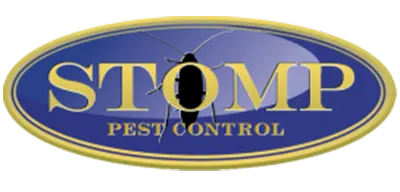
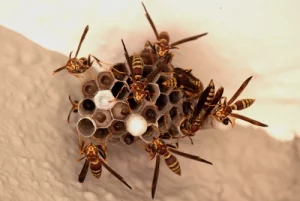
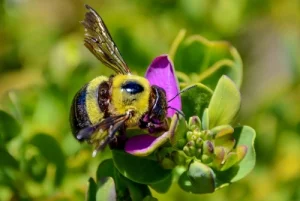
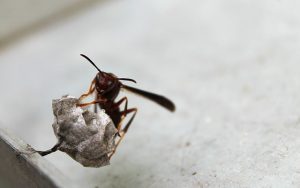
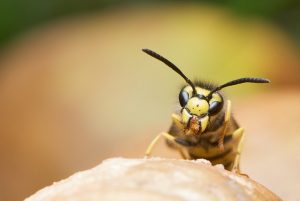 How big are yellowjackets? Between 3/8-5/8 of an inch long
How big are yellowjackets? Between 3/8-5/8 of an inch long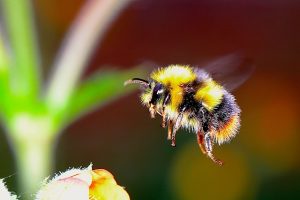 How big are bumble bees? The sized of fully-grown bumble bees are usually 1 full inch long
How big are bumble bees? The sized of fully-grown bumble bees are usually 1 full inch long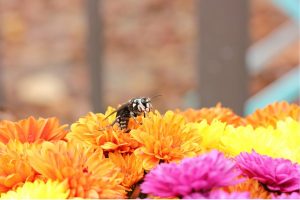 How big are bald-faced hornets? Generally, between 1/2-5/8 inches, Queen bald-faced hornets are typically around 3/4 of an inch
How big are bald-faced hornets? Generally, between 1/2-5/8 inches, Queen bald-faced hornets are typically around 3/4 of an inch